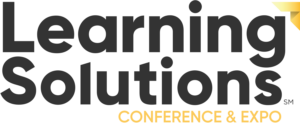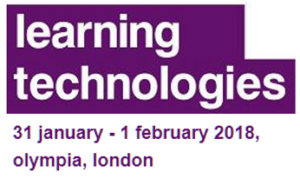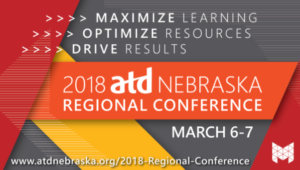Each week that I am able to participate in #lrnchat discussion I post a summary of the discussion to my blog. I do this both for my personal development as well as sharing with the Learning and Development Profession at large. This summary is based on my own interpretations of the chat; others who participated may have differing opinions or interpretations of the discussion. I welcome those that do to add your ideas to the comments.
The topic of this week’s #lrnchat session was “If we could wipe the slate clean…”.
I always find looking at the questions that are used to loosely guide the chat as a nice way to see the overall theme of the chat. Here are the discussion questions that were presented to the group:
Q1) If we could wipe the slate clean, what would corporate learning look like overall?
Q2) If we could wipe the slate clean, what would online learning look like?
Q3) If we could wipe the slate clean, what sorts of tools would be necessary in corporate learning?
Q4) How would people need to be different in your dream corporate learning world?
Q2) If we could wipe the slate clean, what would online learning look like?
Q3) If we could wipe the slate clean, what sorts of tools would be necessary in corporate learning?
Q4) How would people need to be different in your dream corporate learning world?
Q5) What are some things you can do to work toward that dream state?
Key Learning Points
There are a number of barriers that restrict the overall effectiveness of organizational learning and performance efforts. The barriers and obstacles we encounter are often determined by the road we choose to travel. The journey to today’s organizational learning and performance culture is no different.
The challenges we face today are directly connected to the path we took to get here. This is true of individuals and it is also true of professions. Today’s discussion gave us an opportunity to evaluate the path we have taken, both as individuals and as a profession, by considering how things might be different if we ‘wiped the slate clean’.
The discussion started by considering how corporate learning might be different with a clean slate. Overall the responses shared a common theme that showed many of the walls we encounter today crumbling down.
Corporate Learning would be much more open and collaborative. It would be user-defined and contextual. Learning would no longer be pushed to individuals; it would be pulled on-demand and provide individuals with the opportunity to interact with the data sources, be they virtual or people.
If we truly were starting over, I believe the concept of Corporate Learning might not even exist. Learning and performance would be so integrated into the work itself that it would be a natural part of it. Any strategic learning efforts that are built into the work would be invisible to the individual performing the work.
From there the discussion narrowed its scope to online learning, and what that might look like with a clean slate. If the responses to this question could be summed up in three words, it may be these: “Kill the Course”.
I’ve never really jumped on the ‘Kill the course’ bandwagon. To me, it’s very much like the ‘PowerPoint is the devil’ bandwagon. PowerPoint is an excellent tool that is very effective at what it does. We should not blame the tool for its ineffective usage in either practice or context.
The ‘course’ concept is really no different. There are times when participating in learning organized into a course may be completely appropriate. There was a time years ago when online learning was only available as courses, and as such, learning was often crammed into a course by default. Today there are many more options than the packaged-course format. That doesn’t make the course ‘bad’; it makes using the course format as the default incorrect, as there are now many other options.
Many of those new options were shared in this clean-slate discussion. The traditional solo online experience would be replaced with one that enabled connection with a community. It would involve and encourage collaboration, and would be incorporated right into the workflow. It would also leverage mobile technology to be available wherever the learner may be.
Personally, when I consider online learning with a clean slate, this is what I see:
I don’t mean to imply that Google is the future of online learning, though it could happen. I’m referring to Google more conceptually. Online learning should be about two things: Accessibility and filtering. That’s what Google is.
Above the search field could very easily be a question: “What do you want to learn about?”. In an instant, you would get a response with resources that address your inquiry. Google Goggles takes it even further by allowing you to take a picture – of anything – to search for related resources.
Isn’t that the ultimate vision for online learning?
From there the discussion moved towards the types of tools that might be needed to support this clean-slate vision. The themes here echoed the responses to the first two questions. The tools described were ones that enabled collaboration amongst learners so that everyone could create, edit, contribute, and share. In addition, the tools would allow individuals to connect with one another to leverage the collected knowledge of the network. The tools would also emphasize meta-data to maximize contextual filtering.
In short, the tools we would need to create the clean-slate vision of corporate learning… are the tools we already have today.
Next up in the discussion was an exploration of how people would need to be different in this dream corporate learning world. To be honest, I’m not a fan of this question.
Learning and performance programs are designed to ultimately affect how individuals behave and perform. This question seems to ask how learners would need to be different to better fit with Learning and Development, and it doesn’t work that way. Jay Cross said it best in the chat: “We aren’t here to change people. People are People. That’s bedrock. That’s our starting point…”
A better way to frame this question might have been around the organizations instead of the individuals. The organizational culture around learning and performance needs to accommodate the differences of the individuals.
When it comes to how people might be different in this clean-slate vision of corporate learning, there’s only one answer I could come up with that I think is valid: People, including us, would get the hell out of our own way.
The discussion concluded with an actionable question: What are some of the things we can do to work towards this dream state?
There were a number of suggestions shared, most of which shared the theme of breaking through inertia and continuing to move ourselves and our profession forward. To make that happen, we first need to stop focusing on why we can’t live the dream and start focusing on how we can.
Getting started with achieving the dream state isn’t really complicated if you understand that the dream state is a destination, and getting there is a journey. To get started, it’s only about taking the first step. As NIKE says, “Just Do It”.
This was definitely an engaging chat that got a number of people thinking. I have seen a few others post their thoughts and reflections about the chat on their blogs. Check out the resources below for additional perspectives on the “If we could wipe the slate clean…” discussion.
Top 10 #lrnchat Tweets from the February 10th Early Session by Bill Cushard
Are you a Victim or a Learning Activist? by Holly MacDonald
LRNCHAT Reflections from February 10 by Mark Sheppard
Until next week!








